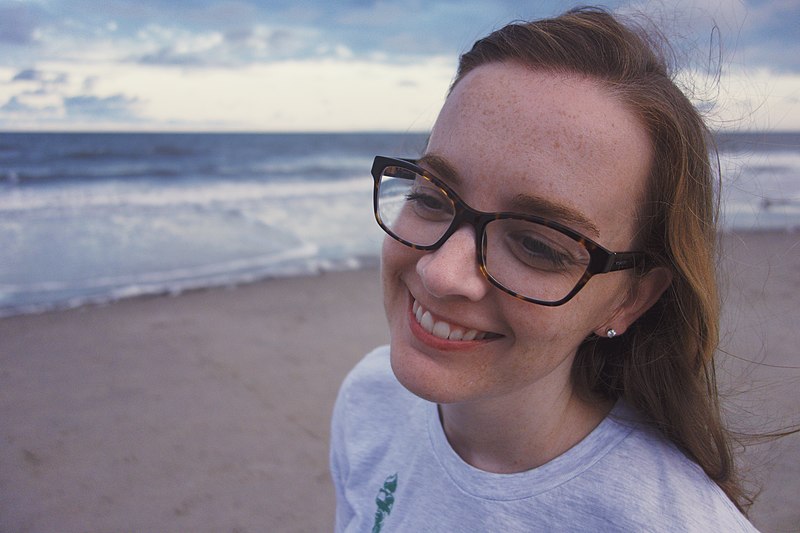
A few months ago, I got a text from a friend.
“I think you’d be interested in this.”
She’d sent me a link to an application for a course offered by Wiki Education and the National Archives and Records Administration (NARA) to train people to improve Wikipedia’s coverage of women’s suffrage in the United States.
I gasped a little when I read the description. She was right; I was interested.
Then I scrolled and saw that there was an application and an enrollment fee and began to talk myself out of it.
My friend apparently sensed this was happening because she soon sent a follow-up text.
“They have financial aid. Just apply and see what happens.”
So I did…and then promptly forgot all about it because what were the chances that these organizations were A) interested in having me participate and B) willing to help me pay for it?
Let me back up a bit.
I spend my days working as a church administrator and raising a 10-year-old son. At work, I answer questions, fight with our office printer, pay bills, and make sure my co-workers have everything they need to make our church “go.” At home, I also answer questions, field constant commentary on Pokemon and Yu-Gi-Oh, and work with my husband to make sure our kid grows into a kind adult.
Both callings are important, but they aren’t always lauded and definitely aren’t lucrative.
Meanwhile, I’m not an academic or an expert on anything. And while I do have writing experience—I helped run a local news site for several years and I write devotionals for our congregation—I wasn’t sure that “my kind” of writing equipped me for contributing to Wikipedia.
So when I hit the submit button on my application, I didn’t expect to hear back from anyone.
“Sure, it’d be fun,” I thought. “But what are the chances?”
Pretty good, turns out.
One afternoon in May, I checked my email one more time before heading home for the day. I found a message that read:
“Congratulations! You’re invited to become a Wiki Scholar.”
A little farther down was a line saying that I’d been awarded financial aid, as well.
I was surprised and stoked…and terrified.
Me, a Wikipedian? Who was I kidding? What had I gotten myself into? I have a full-time job and a kid who’s home for the summer. Why on Earth did I think I could commit to something like this, something that was going to require time, learning new things, and putting myself out there in a new way?
Feeling myself getting spooked, I immediately filled out the contract and paid the small financial contribution they asked of me—best to commit formally and financially before I could chicken out.
I was a nervous wreck leading up to the first class. I could feel the imposter syndrome surging in my veins, especially as my classmates and I shared introductions during that first meeting. They all turned out to be lovely, wonderful people who—as I expected—have many letters after their names.
However, as the course progressed, my nervousness was replaced by excitement. What I perhaps lacked in formal training and research experience I made up for with enthusiasm, curiosity, and stick-to-it-iveness. With the guidance of Elysia Webb, our Wikipedia Expert, and Ryan McGrady, Wiki Education’s Scholars & Scientists Program Manager, I began to feel more fascinated than intimidated by the nuances of Wikipedia. Their instruction and encouragement helped me “be bold” as I progressed from making minor edits, to contributing significant article expansions, to writing original articles about women who took part in the women’s suffrage movement—particularly women who lived and advocated in my hometown of Richmond, Virginia.
As I continue to find my footing on Wikipedia, I’m realizing that the parts of my life that made me feel not qualified to participate are exactly what make me a good fit for this huge public service project. All day, every day, in both my professional and personal lives, I track down information and handle behind-the-scenes tasks in order to contribute to the health of something bigger than me. Wikipedia is another way to do that, but on an even broader scale. And realizing the role I can play in making Wikipedia better has been, without exaggeration, one of the most validating experiences of my life.
I’m still new to Wikipedia, but I’m all in. It’s become a home for me—a home I’m still figuring out, but a home nonetheless.
Me, a Wikipedian? Heck yes.
Editor’s note: Yesterday, a Wikipedia article created by Valerie about Virginia suffragist Anna Whitehead Bodeker appeared on Wikipedia’s Main Page in the “Did You Know?” section – a community recognition of the article’s quality and importance.

Valerie Catrow is a church administrator/writer/mother in Richmond, Virginia. You can read some of her writing at val.catrow.net. She’s also on Twitter: @valeriecatrow.

Awesome, Val!!!